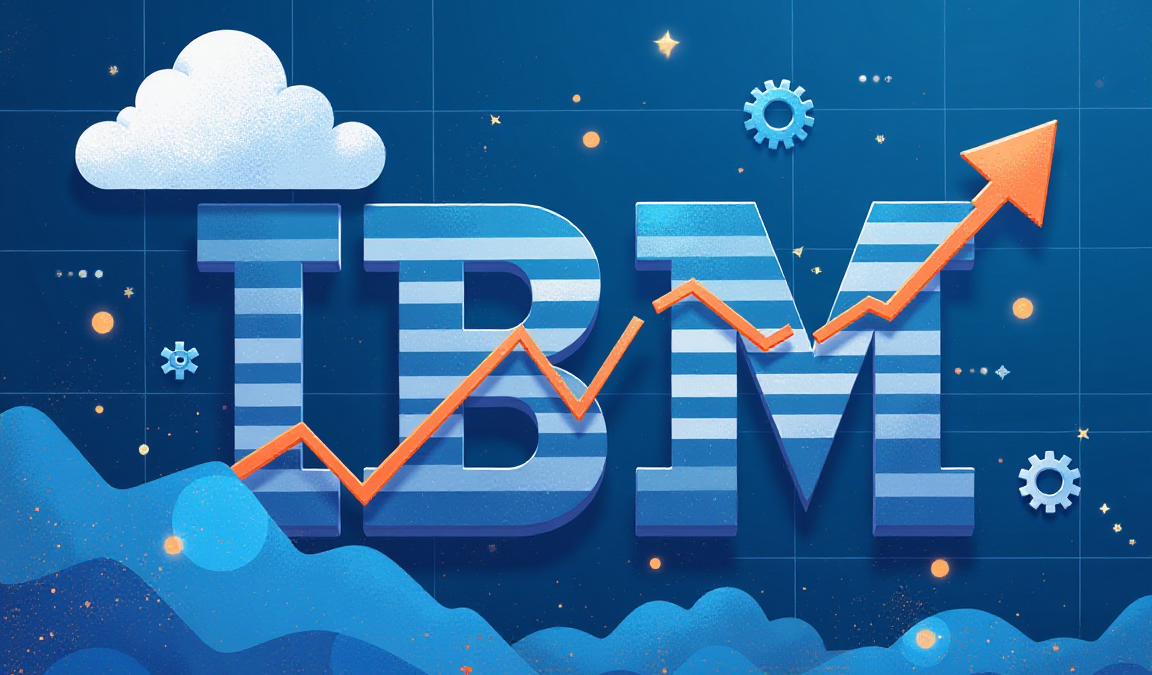IBM shares fell on Thursday after the company’s software revenue missed estimates though it recorded strong year-over-year revenue growth and healthy profit margins.
IBM stock fell 7% on Thursday as investors reacted to mixed signals in the company’s performance and outlook.
Q2 results beat expectations on top and bottom lines
IBM reported adjusted earnings per share of $2.80 for the second quarter of 2025, topping the consensus estimate of $2.64, according to LSEG.
Revenue came in at $16.98 billion, exceeding Wall Street’s forecast of $16.59 billion and marking an almost 8% year-over-year increase, a notable improvement over the sub-1% growth recorded in the first quarter.
Net income rose to $2.19 billion, or $2.31 per share, up from $1.83 billion, or $1.96 per share, in the year-ago period.
The strong performance was supported by growth across key business segments, including software, consulting, and infrastructure.
Despite the strong headline numbers, IBM shares declined a day after the results, possibly reflecting investor concerns about segment-level performance and macroeconomic commentary from management.
Segment performance highlights shifting client priorities
IBM’s software revenue increased approximately 10% to $7.39 billion, slightly below analyst expectations of $7.43 billion.
The hybrid cloud segment, which includes Red Hat, posted 16% growth.
The gross margin in the software unit came in at 83.9%, just below the consensus estimate of 84.0%.
CEO Arvind Krishna noted a shift in customer priorities, saying, “Clients reprioritized their spend to the hardware.” Supporting this, the infrastructure segment delivered a robust 14% revenue increase to $4.14 billion, outperforming the $3.75 billion StreetAccount estimate.
During the quarter, IBM also unveiled its next-generation z17 mainframe computer, contributing to momentum in hardware sales.
Consulting revenue rose nearly 3% year-over-year to $5.31 billion, slightly above the $5.16 billion analyst consensus.
However, IBM CFO Jim Kavanaugh acknowledged that “delayed decision making, especially in discretionary projects, as well as prior-year renewals impacted our in-period signings.”
AI momentum and outlook support long-term strategy
IBM highlighted continued progress in artificial intelligence, with its generative AI-related business growing to $7.5 billion, up from $6 billion in April.
This expanding pipeline is central to the company’s growth strategy, which includes both organic innovation and strategic acquisitions.
During the quarter, IBM acquired Hakkoda, a consulting firm focused on data and AI services.
Krishna also expressed optimism around the current M&A environment, stating, “We are now in a rational regulation environment where M&A that makes sense will get approved in reasonable timeframes.”
Looking ahead, IBM reaffirmed its full-year guidance, projecting over $13.5 billion in free cash flow for 2025 and at least 5% revenue growth at constant currency.
The company remains focused on scaling its AI capabilities and maintaining momentum across its cloud and infrastructure businesses.
At the time of writing, IBM shares were up 18% year-to-date, significantly outperforming the S&P 500’s 8% gain.
The post IBM shares fall 7% after software revenue miss appeared first on Invezz

